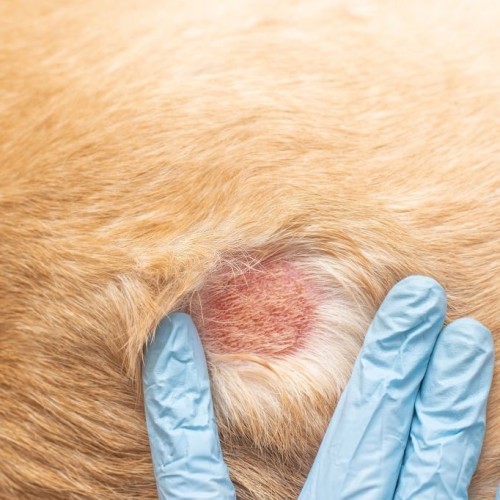Handy Advice On Selecting Dog Coughing
Wiki Article
Turmeric (Curcumin), A Natural Turmeric-Based Product, Can Help With The Joint Health Of Dogs And Cats.
Turmeric as well as its active ingredient curcumin have been found to help maintain joint health in cats and dogs. Check out how turmeric can help improve joint health in your pet's joints:
Anti-inflammatory Properties
Reduce Inflammation
Curcumin is the active ingredient in turmeric. It provides powerful anti-inflammatory properties. It blocks the action of cytokines and enzymes which contribute to inflammation.
Curcumin reduces inflammation of the joints and reduces swelling and pain due to arthritis and other joint disorders. This improves the comfort and mobility of your pet.
Antioxidant Effects
Oxidative stress reduction
Curcumin also has a powerful antioxidant effect. It neutralizes free radicals that could cause inflammation or cell damage.
Benefits: Reduced oxidative stress shields joints and tissues, limiting the progression of joint disease and ensuring joint health.
Pain Relief
Natural Painkiller:
Effect: Curcumin has been shown to relieve pain by modulating pain pathways as well as reducing the sensation of pain.
Benefits: Natural pet pain relief can assist them in being more active.
Cartilage Protection
Cartilage breakdown:
Curcumin is a powerful antioxidant which helps protect cartilage from degrading.
Benefits: By shielding cartilage against degradation It is possible to preserve the integrity and function of joints in pets who suffer from joint pain.
Immune System Modulation
Immune Response Balanced:
Function: Curcumin helps regulate the immune system, promoting an appropriate reaction to inflammation.
Benefits: A well-balanced immune response helps to reduce overly inflammatory conditions and injury to joints, thereby improving overall joint health.
Overall Benefits for Joint Health
Turmeric is a great ingredient to improve mobility for pets suffering from joint pain by reducing pain, inflammation and protecting cartilage.
Pets with reduced pain and easier movement tend to be more active and have higher levels of activity and engagement and this results in greater quality of life.
Use and considerations
Dosage and Administration The amount of turmeric or curcumin your pet should receive depends on the size, weight and their specific health needs. Follow the instructions on the label or those of your veterinarian. In order to increase its absorption, curcumin is usually given along with extracts of black piperine.
Turmeric supplements are offered to pets in a variety of forms including chews, capsules and powders. Choosing a high-quality pet-specific product will ensure security and effectiveness.
While it is generally believed to be safe, too much can cause gastrointestinal upsets in some animals. You can minimize the adverse effects by beginning with lower doses and then gradually increasing the dosage. It is also important to monitor pets for any negative reactions, like vomiting or diarrhea.
Conclusion
Turmeric and curcumin in particular which is the active ingredient, are beneficial for the health of joints in both cats and dogs. Anti-inflammatory, pain-relieving, and antioxidant qualities of turmeric help to reduce inflammation and joint pain, improve joint function, and help protect cartilage. Regular intake of turmeric supplements can increase mobility and the quality of life of pets with joint problems. See the top rated yeast infections in dogs blog for website examples including pet wellness supplements, pet supplements for pets with ringworm, pet supplements for pets with fear of grooming, pet health supplements, pet chamomile supplements, pet supplements for pets with fear of confinement, pet supplements for pets with fear of change, pet goldenseal supplements and more.

How Can Omega-3 Fatty Acids Help With Kidney Failure In Both Cats And Dogs?
Omega-3 fatty-acids, EPA and DHA in particular (docosahexaenoic and eicosapentaenoic fatty acids) offer numerous advantages to kidney health and well-being. They are able to aid in the management of kidney problems.
Anti-inflammatory Properties
Reduced inflammation
Function Omega-3 acid is a powerful anti-inflammatory properties, which reduces the proinflammatory chemical production, such as eicosanoids and cytokines.
Benefits: The omega-3s are capable of reducing kidney inflammation. This will stop damage to the kidneys and improve the function of kidneys.
Blood Pressure Regulation
Reduce Blood Pressure
Function: The omega-3 fatty acid helps control blood pressure by improving vascular functions and reducing inflammation in the body.
Benefits: Lowering your blood pressure can reduce the strain on the kidneys. This could help protect and slow down the progression of kidney diseases.
Proteinuria Reduction
Reducing Proteinuria:
Function: Omega-3s may help reduce the leakage of protein into the urine, called proteinuria, which is a frequent problem in kidney disease.
The reduction in proteinuria helps prevent further damage to the kidneys, and helps preserve kidney function.
Glomerular Filtration (GFR) is a measure of the speed at which a glomerular filtrate is produced, is maintained.
Supporting Kidney Retention
Function: They assist in maintain the integrity and effectiveness of glomerular filters, which is the process whereby the kidneys filter blood.
Benefits - Keeping a GFR above 50% is essential in halting the progression of chronic kidney disease.
Food Stimulation and Support for Nutrition
How to increase appetite
Function: Omega-3s may help enhance appetite and nutritional intake in pets with kidney problems, which is why they often suffer from decreased appetite.
Benefits: Improved nutrition can support overall health, and also help maintain muscle mass and body weight, which is important in pets who suffer from kidney disease.
Cardiovascular Health
Helping Heart Health
Function: Omega-3 fats help improve cardiovascular health by the reduction of inflammation, reducing blood pressure, and improving the lipid profile.
Benefits: A healthier cardiovascular system can reduce the risk of complications with kidney disease, like heart disease, and improve overall health and well-being.
Antioxidant Effects
Reducing Oxidative Stress:
The function: The antioxidant properties of omega-3 fatty oils aid in reducing the strain of oxidative stress on kidneys.
Benefits Reduced oxidative stresses helps protect kidney cells and enhance kidney function.
Considerations and Usage
Dosage and administration: The correct dose of Omega-3 fatty acids depends on the pet's size, weight and health issues. The veterinarian's recommendation or the product's label are important. Omega-3s from fish oil are often found in supplements designed for pets.
Omega-3 supplements can be found for pets in a variety of types. They include liquid oils, chews and capsules. To ensure the safety and effectiveness of your pet, it's essential to select the best quality product.
Omega-3 supplements are generally secure, but certain pets may have stomach issues. You can reduce side negative effects by starting with a lower dosage and increase it gradually over time. Monitoring any adverse effects like diarrhea or vomiting is crucial.
Conclusion
Omega-3 fatty acids can provide important benefits when it comes to managing kidney disease in dogs and cats. Their anti-inflammatory, blood pressure-lowering, proteinuria-reducing, and appetite-stimulating properties help support kidney function and overall health. Regular omega-3 supplementation can boost quality of living and well-being in animals suffering from kidney disease. Follow the most popular collagen for dogs advice for more tips including pet eleuthero supplements, pet supplements for pets with skin tumors, pet vitamins australia, pet colostrum supplements, pet supplements for pets with weak bones, pet circle, pet supplements for pets with brittle nails, pet nettle supplements and more.

Apple Cider Vinegar Can Be Used To Treat Yeast Infections For Dogs And Cats.
ACV (apple cider vinegar) is often recommended as a treatment for yeast infections in both cats and dogs. ACV has some potential benefits however, despite reports from anecdotal sources and studies that suggest the use of ACV is beneficial, it should be administered under the supervision of a veterinarian because of its acidic qualities and adverse consequences. ACV has been thought to be beneficial in treating yeast infections.
Antifungal Properties
Acidic Environment:
ACV's acidity ranges from 2.5-3.0 pH. This acidic atmosphere can make it difficult for yeasts to reproduce.
Benefits The benefits of applying ACV directly to your pet, or even putting it to bath water can help reduce yeast growth on the skin.
Skin pH Regulation
Balancing Skin pH:
ACV can help to regulate your skin's pH levels. This will help to maintain an overall healthy skin barrier and help prevent the growth of yeast.
Benefits: Keeping the proper pH levels in the skin will help to prevent yeast infections, as well as enhance overall health of the skin.
Anti-inflammatory Effects
Reduction of Inflammation:
ACV is a mild anti-inflammatory ingredient.
Benefits of reducing inflammation This can reduce symptoms associated with yeast infection, such as itching, redness and discomfort.
Support for Digestive Health
Internal Use:
ACV helps improve digestion when taken in smaller amounts.
Benefits: A more healthy gut environment can indirectly decrease yeast overgrowth through supporting overall immune function and microbial balance.
Use and considerations
Topical application: dilute the ACV in water (1 part ACV and 1-2 parts of water is normal) and spray or rinse it on affected skin areas or the ear. Do not apply directly on open wounds or to sensitive skin.
Consult a vet before considering any usage for internal use. ACV should always be diluted with water (e.g. 1 teaspoon or 1 tablespoon per cup) and taken in smaller dosages.
Monitoring: Check for indications of allergies or irritations during the use of ACV topically. If you have any negative reactions, discontinue using ACV.
Consultation with Veterinarian: It's crucial to consult with a veterinarian prior to making use of ACV for yeast infections in pets. They can give advice regarding proper dilution, application methods, and possible risks dependent on your pet's individual health needs.
End of Service
Apple cider vinegar might be beneficial in managing yeast infections in dogs and cats However, its use must be done with care and under veterinary supervision. ACV's acidic qualities can impede yeast growth in the ears as well as on the skin. ACV may also provide mild antiinflammatory benefits. But, dilution is key and also careful use to avoid irritation. ACV is effective and safely when you adhere to the advice of a veterinarian as part of an overall treatment plan to treat yeast infections in dogs. Follow the most popular web site for blog advice including pet digestive supplements, pet supplements for pets with fear of music, holistic pet supplements, pet weight loss supplements, pet prostate supplements, pet weight management, pet supplements for pets with fear of injections, pet astragalus supplements and more.
